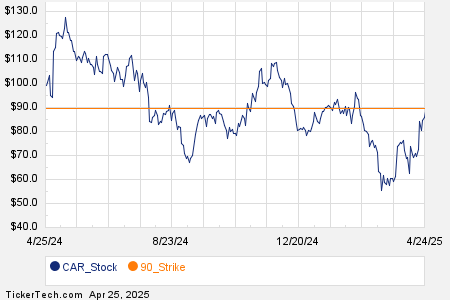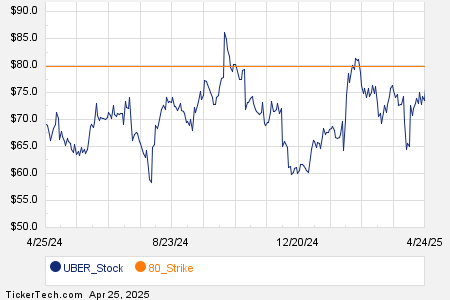Volatile Times: A Closer Look at Quantum Computing Stocks
A rollercoaster ride awaits investors in the quantum computing sector, marked by rapid shifts in stock values over the last few months.
In early December, Google, a subsidiary of Alphabet, made waves with the announcement of its innovative Willow chip. This breakthrough enables quantum computers to self-correct errors more effectively, marking an important step forward in quantum computing technology.
Start Your Mornings Smarter! Get the Breakfast news delivered to your inbox every market day. Sign Up For Free »
Following this announcement, investment in quantum computing stocks skyrocketed, as optimism surrounded the future of the technology. However, the mood was dampened when Nvidia‘s CEO Jensen Huang and Meta Platforms‘ Mark Zuckerberg expressed skepticism. Both believe that truly “useful” quantum computers are at least a decade away, with Huang suggesting it might take 15 to 30 years.
IonQ’s Vision for Quantum Progress
Given the complex nature of quantum computing, it’s surprising to many that these tech leaders foresee a long road ahead. Quantum computers, in theory, should be significantly more powerful than classical computers. Yet, practical applications remain limited due to high error rates, which are gradually improving thanks to algorithms and innovations like Google’s Willow chip.
The burning question for investors is how soon quantum computers will become viable. To provide clarity, CEO Peter Chapman of quantum computing company IonQ (NYSE: IONQ) has outlined an ambitious roadmap. By 2030, he predicts the company will generate nearly $1 billion in revenue while also becoming profitable.
This forecast suggests impressive growth potential. IonQ anticipates around $40 million in revenue for 2024, indicating a compound annual growth rate (CAGR) of over 70% if it reaches the $1 billion mark by 2030.
For context, Nvidia has been one of the top growth stocks, achieving a CAGR of about 60% over the past five years. While IonQ starts from a smaller revenue base, its ambitious targets should certainly capture the attention of investors.
Evaluating the Investment Potential
However, it is crucial to temper expectations. IonQ’s projected timeline highlights both the potential of their technology and the significant challenges that lie ahead.
Returning to Google’s Willow chip announcement, the company identifies several milestones that must be achieved before quantum computing can have “meaningful applications.” While progress is evident in error correction, the road ahead remains long, as breakthroughs in quantum gate control are still required.
IonQ’s goal of $1 billion in revenue is noteworthy, yet once the technology matures, industry growth will likely expand far beyond this figure, making $1 billion seem modest in the bigger picture. Consequently, significant revenue growth might not materialize until after 2030.
The current market valuation of IonQ is approximately $8.5 billion, suggesting that investors are paying 8.5 times the projected sales for 2030. Some analysts argue that this multiple is steep, especially when compared to trailing sales from the past 12 months.
Furthermore, achieving IonQ’s targets hinges on successful execution. Chapman was at the helm when IonQ became public in 2021, and initial revenue forecasts for 2024 have changed drastically. The company now expects to generate about $40 million in revenue instead of the previously projected $60 million.
This suggests a cautious approach to IonQ’s ambitious 2030 projections. It’s essential for investors to weigh the risks; the quantum computing sector may reach significant milestones in the coming years before committing funds.
Is IonQ a Good Investment for You?
Before considering an investment in IonQ, take a moment to reflect on this:
The Motley Fool Stock Advisor team recently identified their picks for the 10 best stocks to buy right now, and IonQ was not included. The selected stocks have the potential for impressive returns in the near future.
Consider that when Nvidia was recommended on April 15, 2005, a $1,000 investment would grow to $843,960 today!
The Stock Advisor offers practical advice for investors, helping build a balanced portfolio, with two new stock picks provided each month. Since 2002, the service has more than quadrupled the returns of the S&P 500.
See the 10 stocks »
*Stock Advisor returns as of January 13, 2025
Suzanne Frey, an executive at Alphabet, serves on The Motley Fool’s board. Randi Zuckerberg, a former director at Facebook and sibling of Meta CEO Mark Zuckerberg, is also a board member. Jon Quast does not hold stocks mentioned. The Motley Fool holds positions in and recommends Alphabet, Meta Platforms, and Nvidia as well.
The perspectives shared here are those of the author and do not necessarily represent those of Nasdaq, Inc.


